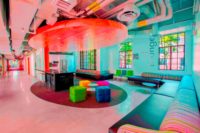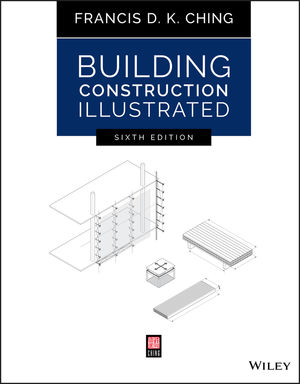LEED v4 Approved by USGBC Members
LEED version 4 has been approved by a vote of U.S. Green Building Council (USGBC) members, with 86 percent of the voting body voting in the affirmative. Approval of LEED v4 as the next version of the LEED Rating System clears the way for its launch during the Greenbuild conference in November 2013.
The landmark vote, in which more than 1,200 USGBC member companies cast ballots, hadn’t appeared to be a sure thing, with passionate arguments on both sides. Those ready for LEED v4 generally support its higher standards, the evolution of key requirements, and new topics such as a focus on disclosure of ingredients in building products. Those against have worried that changes may be too much, too quickly, and will rob LEED of its momentum while confusing the industry.
LEED v4 approved by a large margin
The ballot crossed each of several hurdles with ease, however, meeting quorum with 59.4 percent of the consensus body voting, and votes in each of USGBC’s three member categories—Producer, User, and General Interest—voting “yes” by large margins. Only 10 percent voted “no,” while 4 percent abstained.
“We are ecstatic about this,” said Chrissy Macken, assistant project manager for LEED v4 at USGBC. “This is really phenomenal; it’s a great sentiment from our membership that we are moving in the right direction.”
Brendan Owens, vice president for LEED technical development at USGBC, said, ”That’s the history of this organization. The members have always been progressive and willing to move forward.” He acknowledged the challenges of the six public comment periods leading up to the ballot as well as unresolved concerns about the new system but said, “People are ready to get on with it.”
USGBC reviewing comments submitted
Voters had the opportunity to provide comments along with their votes, and Macken said that about 15 percent had done so. Even after the thousands of public comments through the course of the LEED v4 development process, the ballot comments were particularly valuable, said Owens.
“For someone to say, ‘I wanted to vote yes, but these are the reasons I’m voting no,’ is very informative,” he said. Owens noted that the UGSBC staff and LEED Steering Committee were carefully reviewing the comments. “I think we’ll find there’s quite a few we’ll be able to address.”
LEED 2009 and LEED v4 to coexist
The Greenbuild launch of LEED v4 will be a “holistic, integrated launch” says Owens, with USGBC planning to have LEED Online forms, updated LEED credentialing exams, reference guides, and educational offerings ready. The postponement of LEED v4, which had originally been developed as LEED 2012, is giving USGBC time to launch a more polished product, said Owens.
In response to concerns about the changes in LEED v4 being too abrupt, USGBC announced last year that it would ease into LEED v4, with project teams allowed to register for either LEED v4 or LEED 2009 until June 1, 2015, after which only LEED v4 will remain open.
This article originally appeared on LEEDuser.com.
Of course they did! <br/>More people creating more paperwork that does not increase productivity. I am sure we in the construction sector will need to spend more time documenting 90% o...
More people creating more paperwork that does not increase productivity. I am sure we in the construction sector will need to spend more time documenting 90% of the products that we would use with or without the whole LEED standard.
How can a specification be approved before the "informative"comments are addressed?<br/><br/>It reminds me of the scene in the British Movie "I'm all right Jack" when the managers are r...
It reminds me of the scene in the British Movie "I'm all right Jack" when the managers are reading the contents of suggestion boxes and laughing. One new manager asks why they bother with suggestion boxes and is answered "it stops them from writing on the walls".
Development of a good specification is an extremely difficult task because there can be honest differences of opinion let alone the participation of special interest groups whose contributions can be valuable but who can also confuse the issues and even contribute error.






